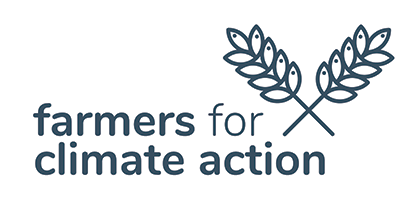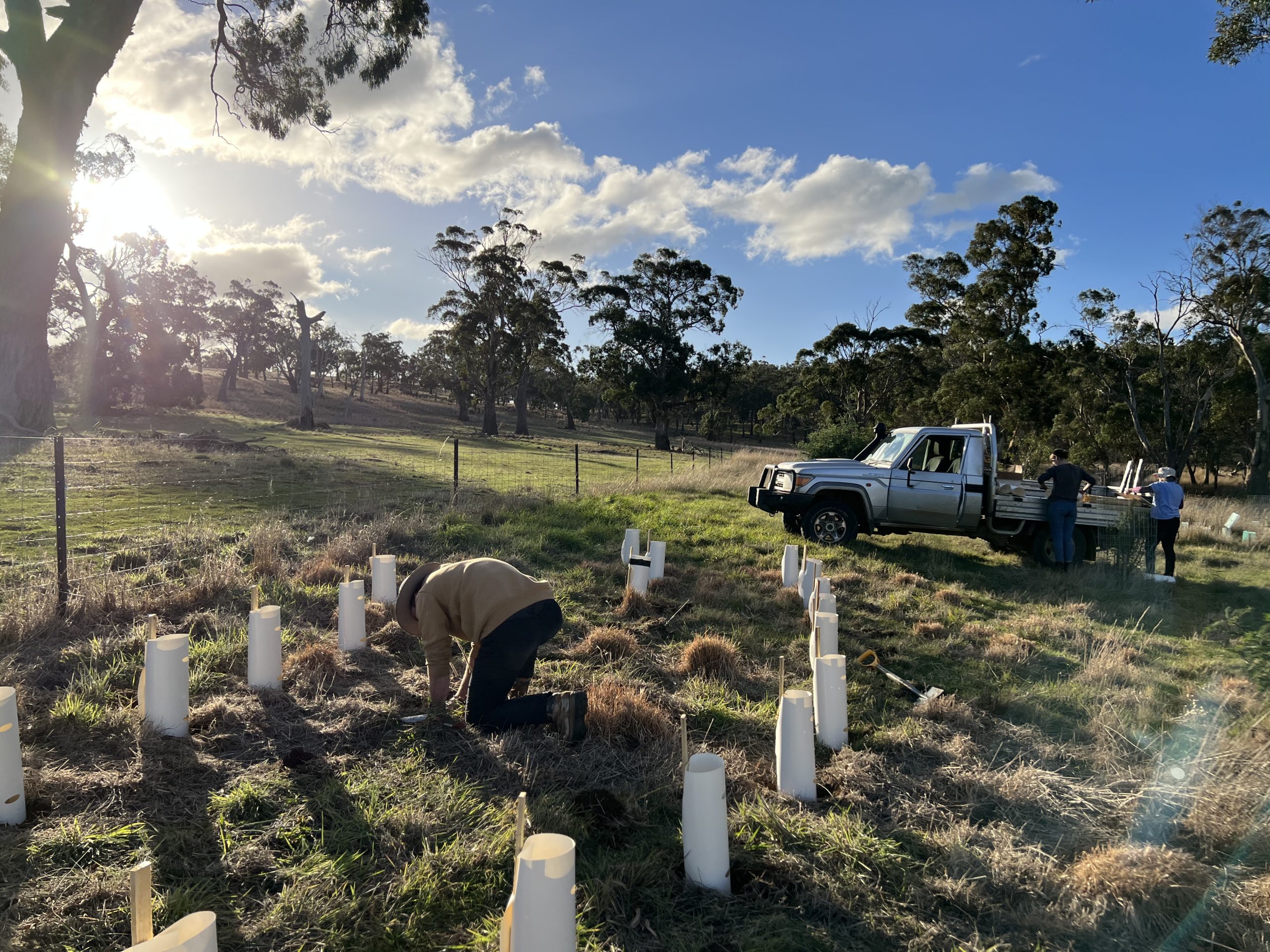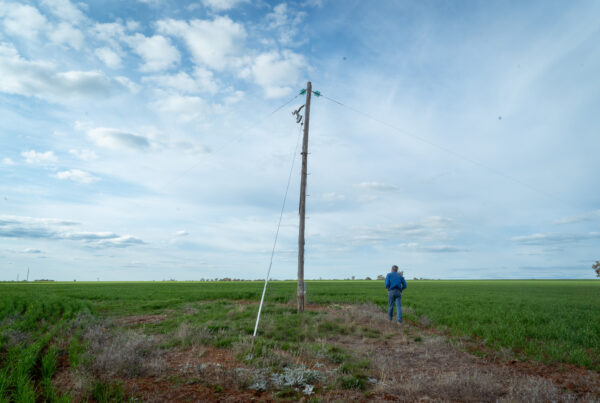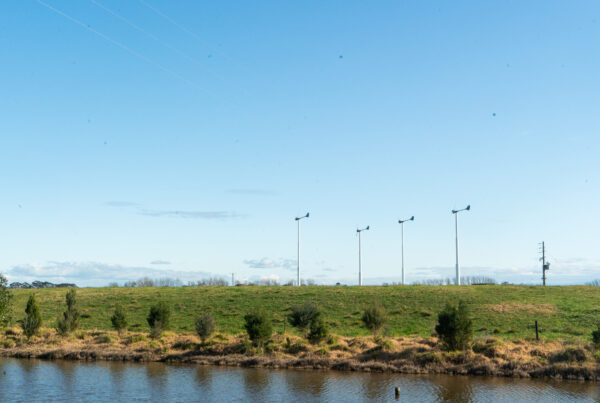29 September 2023
Farmers for Climate Action Submission: AEIC Review of community engagement practices
Executive Summary
Farmers for Climate Action appreciates the opportunity to provide input to the Australian Energy Infrastructure Commissioner’s (AEIC) review of community engagement practices. Farmers for Climate Action represents over 8,000 farmers and 45,000 supporters committed to deep emissions reductions across the economy this decade.
Farmers for Climate Action strongly supports the rapid deployment of renewable energy to achieve deep emissions reductions and ensure energy security. Notwithstanding this support, Farmers for Climate Action has significant concerns about the quality and level of consultation (and constructive actions arising from consultation processes) by Transmission Network Service Providers (TNSPs) and large-scale renewable projects with landholders, leading to a lack of social license and increasing levels of concern and resistance to renewable developments in some regional communities.
At present, there exists a marked absence of adequate consultation and post-consultation actions, national or state policies, and regional access to the clean energy generated in regional communities. These factors are hindering the development of regional transmission infrastructure and renewable energy projects, posing significant challenges to achieving Australia’s renewable energy generation targets.
Recommendations
1. Model Code of Conduct (MCC): Farmers for Climate Action proposes the development of an MCC that includes best practice principles for integrating renewables and transmission, developed by farmers, for farmers, with genuine
recompense and mitigation options.
2. Benefit sharing: Farmers for Climate Action encourages TNSPs and energy companies to explore improved benefit-sharing arrangements such as discounted electricity bills for affected postcodes, higher payments to hosts, support for impacted neighbours, and long-term funding for community benefit programs.
3. Address inequity in farm households’ ability to supply power: Address the inequity in rural households’ capacity to supply renewable energy to the grid by enabling them to feed power into the grid and subsidising connectors for larger projects.
4. State Regulatory Restrictions: Eliminate restrictions preventing farmers from generating energy on one property and sharing it with adjacent properties, even where these properties do not share the same title.
In addition, as outlined in Farmers for Climate Actions’s recent report, ‘Farm Powered’ which explored opportunities for regional communities in the regional energy boom, the Federal Government should:
5. Establish mid-scale community and farmer ‘informal REZs’ (outside of declared REZs) which identify under-utilised hosting capacity in the network and encourage dispersed 1-5 megawatt solar developments.
6. Trial the carving out of a community energy component within a large scale REZ helping to develop and sustain social license for large scale investments. Some design accommodation within the transmission infrastructure is needed to enable a small collection of 1-5 megawatt projects to tie into the otherwise dedicated REZ infrastructure.
7. Eliminate export limits which prevent farmers from exporting more renewable energy to the grid.
8. Broaden the Australian Energy Regulator’s framework beyond a population density calculation, in determining infrastructure upgrades for the distribution network.
9. Develop a plan that identifies areas to prioritise and fund upgrades from Single Wire Earth Return (SWER) to three-phase power across regional Australia.
Farmers for Climate Action thanks the Australian Energy Infrastructure Commissioner Andrew Dyer for the opportunity to provide input into the review to enhance community support and ensure that electricity developments deliver for communities, landholders, and traditional owners.
About Farmers for Climate Action
Farmers for Climate Action is a movement of farmers, agricultural leaders and rural Australians working to have Australia adopt strong climate policies by growing the number of farmers, farming communities and elected representatives championing ambitious action.
We represent more than 8,000 farmers across Australia, and our supporter base includes more than 45,000 Australians committed to deep emissions reductions across the economy this decade.
Background
Farmers for Climate Action fully support the rapid deployment of renewables. This roll out is key to achieving the deep emissions reductions we need this decade to limit climate change impacts, provide energy security and protect the future of farms and food security. A recent Farmers for Climate Action survey (September 2023) showed that 92% of respondents are supportive of Australia’s acceleration to more renewable energy in our national grid.
Notwithstanding our support, Farmers for Climate Action has significant concerns about the level and quality of consultation by Transmission Network Service Providers (TNSPs) and large-scale renewable projects with landholders. Numerous farmers in our network have shared their negative experience with TNSPs. There is a long road ahead to restore and build trust and collaborative models for coexistence, despite the urgent need for
transmission and large scale renewable projects in the regions.
The most significant risk factor to achieving Australia’s renewable energy targets is the lack of regional transmission infrastructure to support large scale renewable energy generation.
This challenge is exacerbated by:
1. The lack of adequate consultation with regional communities and affected landholders
2. An absence of national or state policies or guidelines to create an equitable framework that supports impacted businesses and community needs; and
3. The fact that regional communities can not access the clean energy their communities are hosting.
This combination of factors has created an absence of social license, and in places, resistance to large scale renewable developments in farming communities.
Within Farmers for Climate Action’s network, which we acknowledge is biased towards farmers who want the shift to a renewable electricity grid to succeed, there exists significant push back to hosting transmission infrastructure. A recent survey of farmers across our network showed:
- 29% were against hosting transmission
- 49% said it would depend
- while just 23% said yes to hosting transmission on their properties.
The survey also shows that 64% believe their community is either very or somewhat opposed to transmission projects.
When asked about large-scale renewables and storage infrastructure (e.g., wind turbines, large batteries or agrivoltaics such as grazing under solar panels) on farm:
- 52% were open to hosting such infrastructure
- 24% said no
- 22% were unsure
- 2% already hosted such projects on their farm
In terms of the wider community, respondents believed that 30% of their community is either very or somewhat opposed to large-scale renewable projects.
Importantly, many farmers active in this space are experiencing business limitations due to renewables projects hosted by nearby farms. The impact of overhead transmission lines which require mandated clearance areas from machinery deems some of their property unable to be farmed as centre pivots or tractors cannot operate under these lines. This creates a loss of agricultural land use by neighbouring farms which is not currently
addressed in consultation or legislative processes.
Solutions as outlined below, including electricity bill discounts to postcodes with infrastructure projects and the ability for landholders to feed energy into the grid must be considered. The reality is that farming communities across Australia are being asked to bear the burden of significant infrastructure in their communities for the benefit of powering the East Coast of Australia. Unless there is a drastic change to quality and actions taken as a result of community engagement, the likelihood of achieving Australia’s target is in significant doubt.
Farmers for Climate Action welcomes the opportunity to provide input to this important issue and also to outline our expertise and ability to assist in repairing social licence for transmission and renewable energy projects where it is most needed, with Australian farmers.
Best Practice Community Engagement
Farmers for Climate Action notes the Australian Energy Market Commission’s draft rule change that outlines to TNSPs the expectations to consult with landholders, first nations people and wider impacted communities. However as per our submission to the AEMC, the proposed rule does not provide guidance as to what best practice community engagement constitutes. Community engagement across the country to date would suggest that TNSPs
and some energy companies do not have the required background in farming communities for meaningful engagement, nor do they appear to be exploring genuine changes to business practices to address concerns raised.
Farmers are asking for a code of conduct they can trust. Developed by farmers, for farmers. A clear mandate to transmission and energy companies to do better. A code of conduct that receives broad political support to de-escalate the building political conflict surrounding the acceleration of Australia’s renewable grid. A code of conduct that builds social licence for the acceleration of Australia’s renewable grid in farming communities.
Farmers for Climate Action proposes the development of a Model Code of Conduct (MCC) to provide guidance to transmission and energy companies. The MCC would develop best practice principles for the integration of renewables and transmission alongside modern farming practices. Critically these principles should be developed by farmers, for farmers and include genuine recompense and options to mitigate unintended negative
consequences where they are demonstrated to exist.
Farmers rarely engage in traditional government consultation processes due to a lack of trust, and online consultation processes are often unsuited to farming communities. With appropriate support, Farmers for Climate Action could lead engagement and embark on a swift and in-depth listening campaign, to codesign a fit for purpose MCC. We consider an MCC that addresses farmers’ and regional communities’ genuine concerns with meaningful
action will remove the key barrier to regional renewable and transmission infrastructure roll outs. In turn, we consider farmer support for renewables will grow exponentially.
Farmers for Climate Action would welcome the opportunity to discuss the development of a Model Code of Conduct.
Benefit Sharing
Every effort should be put in place to encourage TNSPs and energy companies to explore improved benefit-sharing arrangements for hosts and communities, including higher annual payments to hosts, payments to impacted neighbours, and long-term funding for community benefit programs.
To enable the rapid deployment of transmission lines and renewable energy projects, it is clear that the wider regional community needs to be consulted and need to feel the positive impact of real community benefits, as well as the landholders directly impacted.
The Farmers for Climate Action renewables on farm survey (September 2023) asked farmers what would lead to their communities being more supportive of hosting transmission infrastructure. The responses showed:
- 55% support for putting transmission infrastructure underground in certain locations
- 44% support for more extensive and genuine community consultation around transmission projects
- 36% support for funding for significant community benefit programs in communities that host the infrastructure (i.e. enabling the broader community to share the financial benefits of the towers)
- 35% support for payments to impacted neighbours (i.e. those on adjoining properties to the transmission infrastructure)
- 30% support for direct financial incentives to individuals in the locality of the infrastructure, e.g. cheaper or free energy bills
In the same survey, Farmers for Climate Action tested what farmers thought would lead their communities to being more supportive of hosting large scale renewable projects:
- 54% support for community ownership of renewables infrastructure (e.g. opportunities for the community to hold equity shares in the projects) 54.2%
- 51% support for more extensive and genuine community consultation around renewable energy projects
- 48% support more care being taken with the location of renewable energy projects
- 44% support more funding for significant community benefit programs in communities that host the infrastructure (i.e. enabling the broader community to share the financial benefits of the renewables)
- 34% support for direct financial incentives to individuals in the locality of the infrastructure, e.g. cheaper or free energy bills
Farmers for Climate Action advocates for TNSPs and energy companies to apply electricity discounts to affected landholders and communities. An example of what this could look like is a % energy price discount for postcodes with infrastructure projects for the life of the project.
Inequity in farm households’ ability to supply power
The approach of Regional Energy Zones (REZs) and the current approach to grid management, does not enable farm households to supply energy to the grid for projects bigger than 5 megawatts, without significant investment for connectors.
Australia has the world’s highest per-capita solar energy penetration, with almost one in three homes hosting PV panels. However, there is a limit to metropolitan expansion for renewable energy generation. In contrast, farming households, who manage 55% of Australia’s land mass, have the capacity to generate renewable energy at scale.
Metropolitan residents have the ability to feed power directly into existing grid infrastructure. Rural residents, who generally have a one-power line system, are unable to input excess power generated. As noted above, rural households have significant land that could be used for renewable energy, but strong opposition to new transmission.
While urban residents have the ability to generate income from their roof-top solar, farm residents should be provided the same opportunity from their rooftop power along with other power they are able to generate on their properties. A simple, practical, and cost-effective solution would be to add a second powerline to properties and subsidise connectors required for projects larger than 5 megawatts.
While the current national strategy is focused on the new infrastructure required, addressing the inequity in farm households’ ability to supply power is a cost effective upgrade to existing infrastructure that could have significant renewable energy fed into the grid and also balance the inequity for farming communities.
This is recognised in a recent consultation process of 50 regional energy customer leaders by energy distributor, Powercor, which found, “Addressing poor reliability, power quality and limited capacity was perceived as enabling communities to participate in the clean energy transition.” (June 2023, p.16)
State Regulatory restrictions
A perverse state regulatory restriction currently is that farmers with multiple titles (often on one property), are not permitted to generate energy on one property and share it with their other properties, even when properties are adjacent.
As outlined in Farmers for Climate Actions’s recent report Farm Powered, which explores opportunities for regional communities in the regional energy boom, the Federal Government should:
- Establish mid-scale community and farmer ‘informal REZs’ (outside of declared REZs) which identify under-utilised hosting capacity in the network and encourage dispersed 1-5 megawatt solar developments.
- Trial the carving out of a community energy component within a large scale REZ helping to develop and sustain social license for large scale investments. Some design accommodation within the transmission infrastructure is needed to enable a small collection of 1-5 megawatt projects to tie into the otherwise dedicated REZ infrastructure.
- Eliminate export limits which prevent farmers from exporting more renewable energy to the grid.
- Broaden the Australian Energy Regulator’s framework beyond a population density calculation, in determining infrastructure upgrades for the distribution network.
- Develop a plan that identifies areas to prioritise and fund upgrades from Single Wire Earth Return (SWER) to three-phase power across regional Australia.
Conclusion
Farmers for Climate Action is extremely supportive of the need to rapidly deploy infrastructure to generate and transport renewable energy from where it is produced, to where it is needed. This roll out is key to achieving the deep emissions reductions we need this decade.
The lack of considered engagement and policy solutions for benefit sharing is putting our ability to meet Australia’s renewable energy targets at serious risk.
Farmers for Climate Action welcomes the opportunity to discuss in detail the development of a Model Code of Conduct, developed through co-design with Australian farmers and regional communities to inform best practice engagement for TNSPs and energy companies.
Sincerely,
Natalie Collard
CEO, Farmers for Climate Action
Email: [email protected]
Phone: 1800 491 633
Web: farmersforclimateaction.org.au
Post: Suite 327 M Centre, 11 Palmerston Lane, Manuka ACT 2603







